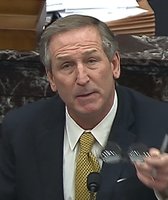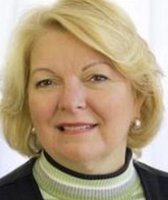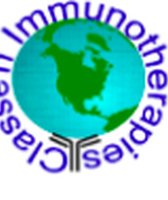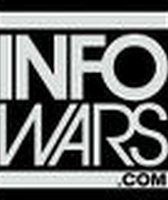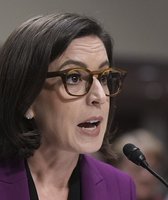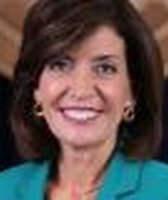Stand up for the facts!
Our only agenda is to publish the truth so you can be an informed participant in democracy.
We need your help.
I would like to contribute
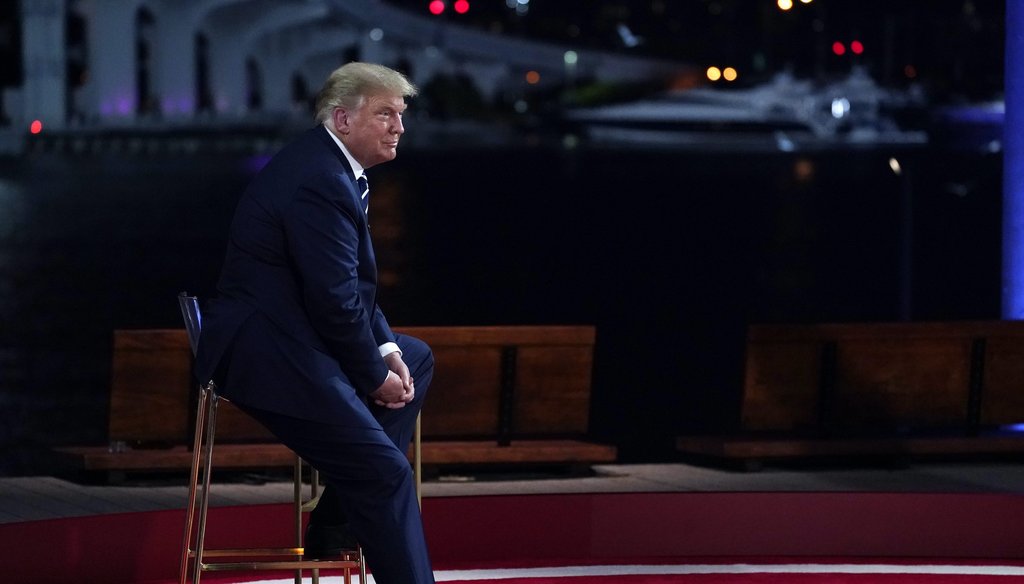
President Donald Trump speaks during an NBC News Town Hall, at Perez Art Museum Miami on Oct. 15, 2020, in Miami. (AP)
If Your Time is short
-
During an NBC town hall in Miami on Oct. 15, President Donald Trump said he knew “nothing about QAnon.” It was the latest instance in which the president dodged questions about the baseless conspiracy theory.
-
We wrote a memo with 11 tweet-length facts that Trump should know about QAnon, which the FBI has said is a potential domestic terrorism threat.
President Donald Trump says he doesn’t know anything about a conspiracy theory that claims he’s on a mission to secretly fight a cabal of left-leaning, Satan-worshipping, cannibalistic pedophiles.
"I know nothing about QAnon," Trump said during an NBC News town hall in Miami on Oct. 15. "I do know they are very much against pedophilia. They fight it very hard. But I know nothing about it."
Trump’s professed ignorance of QAnon may seem familiar.
On Aug. 14, he didn’t answer a reporter’s question about whether he supports QAnon. Five days later, he said he wasn’t well-versed in the conspiracy theory.
"Well I don’t know much about the movement other than I understand they like me very much, which I appreciate," he said Aug. 19.
Sign up for PolitiFact texts
At the same time, Trump, his family and his campaign staffers have repeatedly shared posts from QAnon-promoting accounts on social media and supported political candidates who subscribe to the conspiracy theory. On Oct. 13, the president retweeted a QAnon-supported theory that falsely claims the Obama administration killed Navy SEALs in Afghanistan.
At the NBC town hall, Trump said he knew "nothing about it."
"That was a retweet. That was an opinion of somebody. And that was a retweet," he said. "I’ll put it out there, people can decide for themselves."
RELATED: Fact-checking Donald Trump, Joe Biden in head-to-head town halls
We can’t say to what extent Trump knows about QAnon. Roughly half of Americans are at least familiar with the conspiracy theory, according to a September survey from the Pew Research Center. (We asked the White House and the president’s re-election campaign if Trump has been briefed on QAnon, but we haven’t heard back.)
What we can say is that QAnon is a baseless, potentially dangerous conspiracy theory — one that Trump should know about, since the FBI has said it is a domestic terrorism threat.
This memo can bring anyone up to speed in a hurry.
There is no evidence to support QAnon’s claims. This is crucial to remember as you read the tenets of the belief below.
QAnon relies on posts from an anonymous internet persona named "Q." The term "QAnon" is a mashup of "Q" and "anon," as in "anonymous." The Q is a reference to a high level of security clearance at the U.S. Energy Department.
QAnon has been around since October 2017. That’s when Q started posting vague and cryptic messages on a fringe internet forum called 4chan. Those posts, now hosted on 8kun — another forum — serve as the backbone of the conspiracy theory, whose believers trend conservative.
QAnon claims the world is run by a cabal of Satan-worshipping pedophiles. People targeted by the group include famous Democrats and celebrities, including Hillary Clinton and Tom Hanks. The conspiracy theory says the cabal kills and eats their victims to ingest a life-extending chemical in human blood.
QAnon says Trump is secretly fighting the underground pedophile ring. According to the conspiracy theory, top military generals convinced Trump to run for president in 2016. He’s now secretly working behind the scenes to bring those involved to justice.
QAnon evolved from another baseless conspiracy theory. Pizzagate emerged during the 2016 campaign. It falsely claimed that a Washington, D.C., pizza restaurant was holding children hostage for Clinton and her allies to abuse. In December 2016, a North Carolina man drove to the restaurant to "self-investigate" the claims and fired an assault rifle inside. No one was injured.
QAnon blossomed on social media platforms like Facebook and YouTube. In August, NBC News reported that an internal Facebook investigation found thousands of groups and pages with millions of members and followers dedicated to QAnon. Users on YouTube and Twitter were instrumental in helping QAnon jump to a more mainstream audience.
QAnon is supported by some congressional candidates. Among them are Marjorie Taylor Greene, who won the primary election in Georgia’s 14th congressional district. Republicans Jo Rae Perkins of Oregon and Lauren Boebert of Colorado have also promoted the conspiracy theory.
QAnon has spread beyond the United States. A July report from NewsGuard, a company that tracks online misinformation, noted that QAnon has taken root in the European Union. Regional Facebook groups have swelled in numbers and tailored the conspiracy theory "to target local politicians and elites."
QAnon has been linked to crime. In a May 2019 intelligence bulletin, FBI officials described "conspiracy theory-driven domestic extremists" — including QAnon — as a growing threat. A July report from the U.S. Military Academy’s Combating Terrorism Center cited a number of examples of violence linked to QAnon — including one in which a man pleaded guilty to making a terrorist threat.
QAnon is banned on several social media platforms. Facebook, Instagram, Twitter, YouTube and TikTok have all cracked down on content related to the conspiracy theory. In light of those actions, some QAnon supporters have rebranded the movement as #SaveOurChildren.
FURTHER READING: What is QAnon, the baseless conspiracy spilling into US politics?
Our Sources
ABC News, "Man pleads guilty to terrorism charge after blocking Hoover Dam bridge with armored truck," Feb. 13, 2020
BBC, "QAnon: TikTok blocks QAnon conspiracy theory hashtags," July 24, 2020
Congress.gov, H.Res.1154 - Condemning QAnon and rejecting the conspiracy theories it promotes.
C-SPAN, President Trump News Conference, Aug. 14, 2020
C-SPAN, President Trump News Conference, Aug. 19, 2020
NBC News, "Facebook bans QAnon across its platforms," Oct. 6, 2020
The New York Times, "Twitter Takedown Targets QAnon Accounts," July 21, 2020
Pew Research Center, "Political Divides, Conspiracy Theories and Divergent News Sources Heading Into 2020 Election," Sept. 16, 2020
Politico, "Trump isn't secretly winking at QAnon. He's retweeting its followers." July 12, 2020
PolitiFact, "Donald Trump gives oxygen to baseless QAnon conspiracy theory," Aug. 21, 2020
PolitiFact, "Fact-checking Donald Trump, Joe Biden in head-to-head town halls," Oct. 16, 2020
PolitiFact, "How QAnon is seeping into Florida during the 2020 presidential campaign," Sept. 8, 2020
PolitiFact, "Trump retweets Benghazi conspiracy theory that falsely claims Biden, Obama killed Navy SEALs," Oct. 14, 2020
PolitiFact, "What is QAnon, the baseless conspiracy spilling into US politics?" Aug. 27, 2020
Vox, "Trump spent his holidays retweeting QAnon and Pizzagate accounts," Jan. 2, 2020
Yahoo! News, "Exclusive: FBI document warns conspiracy theories are a new domestic terrorism threat," Aug. 1, 2019
YouTube, "Managing harmful conspiracy theories on YouTube," Oct. 15, 2020










